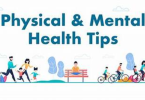In today’s fast-paced world, finding balance and maintaining good health can feel overwhelming. Many people are searching for practical ways to take care of their mind and body without relying heavily on medications or supplements. That’s why learning how to improve overall wellness naturally has become so important. By adopting simple, sustainable habits—like eating whole foods, staying hydrated, managing stress, and moving your body regularly—you can enhance your energy, mood, and overall quality of life. In this guide, we’ll explore natural strategies that support long-term health and well-being in a way that’s easy to follow and maintain.
1. Nourish Your Body With Whole, Natural Foods

What you eat directly influences how you feel—physically and mentally. Natural, whole foods give your body essential nutrients, improve digestion, and boost long-term health.
How to Eat More Naturally
- Include a variety of fruits and vegetables in your meals.
- Choose whole grains like oats, quinoa, brown rice, and barley.
- Select clean protein sources: eggs, fish, legumes, tofu, or lean meats.
- Add healthy fats from nuts, seeds, avocados, and olive oil.
- Reduce ultra-processed foods that contain excessive sugar, sodium, and additives.
Benefits
- Improved digestion and gut health
- Better skin, hair, and overall appearance
- Increased energy levels
- Reduced risk of chronic conditions (heart disease, obesity, diabetes)
- More stable blood sugar and mood
Possible Drawbacks
- Eating whole foods can be more time-consuming to prepare.
- Healthier options may be more expensive depending on location.
- Sudden drastic changes can feel overwhelming for beginners.
2. Stay Hydrated to Support Your Entire System
Water is a vital part of almost every function in the body. Many people mistake thirst for fatigue, headaches, or hunger.
How to Stay Hydrated Naturally
- Keep a water bottle near you all day.
- Drink water before every meal.
- Include herbal teas and naturally flavored water if plain water feels monotonous.
Benefits
- Improved digestion and nutrient absorption
- Clearer skin and better hydration
- Enhanced concentration and brain function
- Increased energy levels
- Better temperature regulation and joint lubrication
Possible Drawbacks
- Frequent bathroom trips, especially when increasing water intake suddenly
- Some people may not enjoy the taste of plain water and struggle with consistency
3. Move Your Body Daily in Ways You Enjoy
Daily movement is essential for long-term wellness, but it doesn’t have to be intense or complicated. Consistency matters more than duration.
Natural Ways to Stay Active
- Take brisk walks during breaks.
- Stretch when you wake up or before bed.
- Try low-impact workouts like yoga, pilates, or swimming.
- Replace short car trips with walking or cycling when possible.
Benefits
- Better heart health and improved circulation
- Increased flexibility and muscle strength
- Reduced stress and anxiety
- Better sleep patterns
- Supports weight management
Possible Drawbacks
- Finding the right type of exercise may take time
- Starting a new routine can cause soreness at first
- Lack of motivation may make consistency challenging
4. Prioritize Sleep as Part of Natural Wellness
Sleep is the foundation of mental and physical health. Without proper rest, your body struggles to repair, regulate hormones, and stay energized.
How to Improve Sleep Naturally
- Keep a consistent sleep schedule.
- Create a dark, cool, quiet sleep environment.
- Avoid caffeine late in the day.
- Reduce screen time before bed.
Benefits
- Better concentration, energy, and productivity
- Improved mood and emotional balance
- Stronger immune system
- Enhanced muscle recovery and physical performance
Possible Drawbacks
- Sleep routines take time to adjust to
- Some people may face insomnia due to stress or lifestyle habits
- External factors such as noise or light may disrupt sleep
5. Manage Stress Through Simple, Natural Techniques
Stress is unavoidable, but it can be managed. Natural stress relief methods help regulate your nervous system without relying on artificial stimulants or suppressants.
Natural Stress Management Strategies
- Practice slow, deep breathing
- Try short meditation sessions
- Write thoughts or feelings in a journal
- Spend time in nature
- Listen to calming music
- Practice gratitude daily
Benefits
- Reduced anxiety and mental fatigue
- Improved emotional resilience
- Better decision-making and clarity
- Lowered physical tension and headaches
Possible Drawbacks
- Requires consistency to be effective
- Meditation can feel difficult for beginners
- Some people may need additional support depending on stress severity
6. Strengthen Positive and Supportive Relationships
Having healthy relationships is a vital part of improving overall wellness naturally. Human connection affects your mood, stress levels, and sense of belonging.
How to Build Strong Connections
- Spend quality time with people who uplift you.
- Practice honest communication.
- Set healthy boundaries.
- Join groups or communities that share your interests.
Benefits
- Higher emotional stability
- Stronger sense of support and belonging
- Reduced feelings of loneliness
- Improved overall happiness
Possible Drawbacks
- Some relationships may require reevaluation or boundaries
- Building new friendships can be challenging for introverted individuals
You may also like to read read these posts:
Best Fitness Advice for Weight Loss – The Complete, Real-Life, No-Nonsense Guide
How to Start a Healthy Fitness Routine: A Fully Detailed, Friendly, Beginner-Friendly Guide
Gym and Exercise Tips for Beginners: A Complete, Friendly, and Detailed Guide
Quick Fitness Hacks for a Busy Lifestyle: How to Stay Fit When You Have Zero Time
7. Reduce Exposure to Toxins in Your Environment

Small changes in your daily environment can reduce exposure to harmful chemicals found in many household, skincare, and cleaning products.
Natural Ways to Reduce Toxins
- Use natural or eco-friendly cleaning products.
- Choose skincare with fewer artificial fragrances and preservatives.
- Open windows to improve indoor air quality.
- Incorporate indoor plants that naturally purify the air.
Benefits
- Reduced skin irritation and headaches
- Better air quality
- Fewer allergens in the home
- Long-term health protection
Possible Drawbacks
- Natural products may cost more
- Switching products may require trial and error
- Not all natural cleaning solutions are as strong as chemical-based ones
8. Spend Time Outdoors Regularly
Nature has a calming effect on the mind and body. Sun exposure also helps regulate your sleep cycles and supports vitamin D production.
Ways to Enjoy Natural Outdoor Time
- Take a walk outside for even 10 minutes daily.
- Sit in the sun during the morning.
- Go for weekend hikes or nature visits.
- Practice grounding by walking barefoot on grass.
Benefits
- Reduced stress and mental fatigue
- Improved sleep and vitamin D levels
- Greater sense of peace and clarity
- Boosted immune system
Possible Drawbacks
- Limited access to natural surroundings in some areas
- Weather conditions may affect consistency
- Sun overexposure requires protection
9. Practice Mindfulness and Stay Present
Mindfulness helps you slow down, observe your thoughts, and stay connected to the moment. This leads to better decision-making and reduces emotional overwhelm.
Simple Mindfulness Habits
- Take mindful breaths throughout the day.
- Focus on your senses during meals.
- Be aware of your thoughts without judgment.
- Pause before reacting in stressful moments.
Benefits
- Reduced anxiety and burnout
- Improved emotional stability
- Better focus and mental clarity
- Greater appreciation for life’s small moments
Possible Drawbacks
- Requires patience and practice
- Can be uncomfortable at first as it increases awareness of emotions
10. Listen to Your Body’s Signals
Your body gives you continuous feedback. The more you pay attention, the easier it becomes to maintain natural wellness.
What Listening to Your Body Looks Like
- Rest when you’re tired
- Drink water when thirsty
- Stretch when stiff
- Slow down when overwhelmed
- Choose foods that make you feel energized rather than sluggish
Benefits
- Prevents burnout and chronic stress
- Improves self-awareness
- Helps maintain balance in lifestyle habits
- Supports sustainable, long-term wellness
Possible Drawbacks
- Many people initially struggle to recognize their body’s cues
- Habits may need to be relearned over time
Conclusion
Learning how to improve overall wellness naturally is a journey, not a one-time change. The goal is not perfection but progress. Small steps such as drinking more water, sleeping well, managing stress, eating whole foods, and spending time outdoors can transform your physical and mental well-being.
By understanding both the benefits and the possible drawbacks of each approach, you can create a balanced routine that fits your unique lifestyle. The more consistent you are, the more you’ll notice positive changes in your energy, mood, and overall health.
If you want, I can also help you:
turn this into an SEO-optimized blog post
add keywords and meta descriptions
FAQs on How to Improve Overall Wellness Naturally
1. What does “overall wellness” mean?
Overall wellness refers to a balanced state of physical, mental, and emotional health. It’s not just about being free from illness—it’s about feeling energized, focused, and content in daily life.
2. Can I really improve my wellness naturally without medications or supplements?
Yes! Many aspects of wellness—like sleep, hydration, nutrition, movement, stress management, and healthy relationships—can be improved naturally. Supplements may help in certain cases, but the foundation of wellness comes from lifestyle habits.
3. How long does it take to see results from natural wellness practices?
Results vary depending on your current lifestyle and consistency. Some benefits, like better hydration or improved mood, can appear within days, while long-term improvements in energy, sleep, and immune health may take several weeks to months.
4. Do I need to follow a strict diet or exercise plan?
No. Strict plans can be hard to maintain. Focus on small, sustainable habits: eat more whole foods, stay hydrated, move your body daily, and prioritize sleep. Enjoying the process is key to long-term wellness.
4. Do I need to follow a strict diet or exercise plan?
No. Strict plans can be hard to maintain. Focus on small, sustainable habits: eat more whole foods, stay hydrated, move your body daily, and prioritize sleep. Enjoying the process is key to long-term wellness.
5. Can mindfulness really improve my health?
Absolutely. Mindfulness reduces stress, improves emotional balance, boosts focus, and even supports better sleep and digestion. Regular practice, even for a few minutes a day, can make a noticeable difference.




